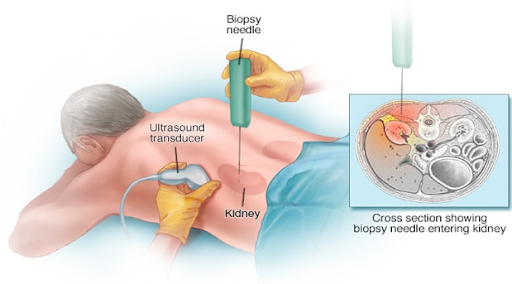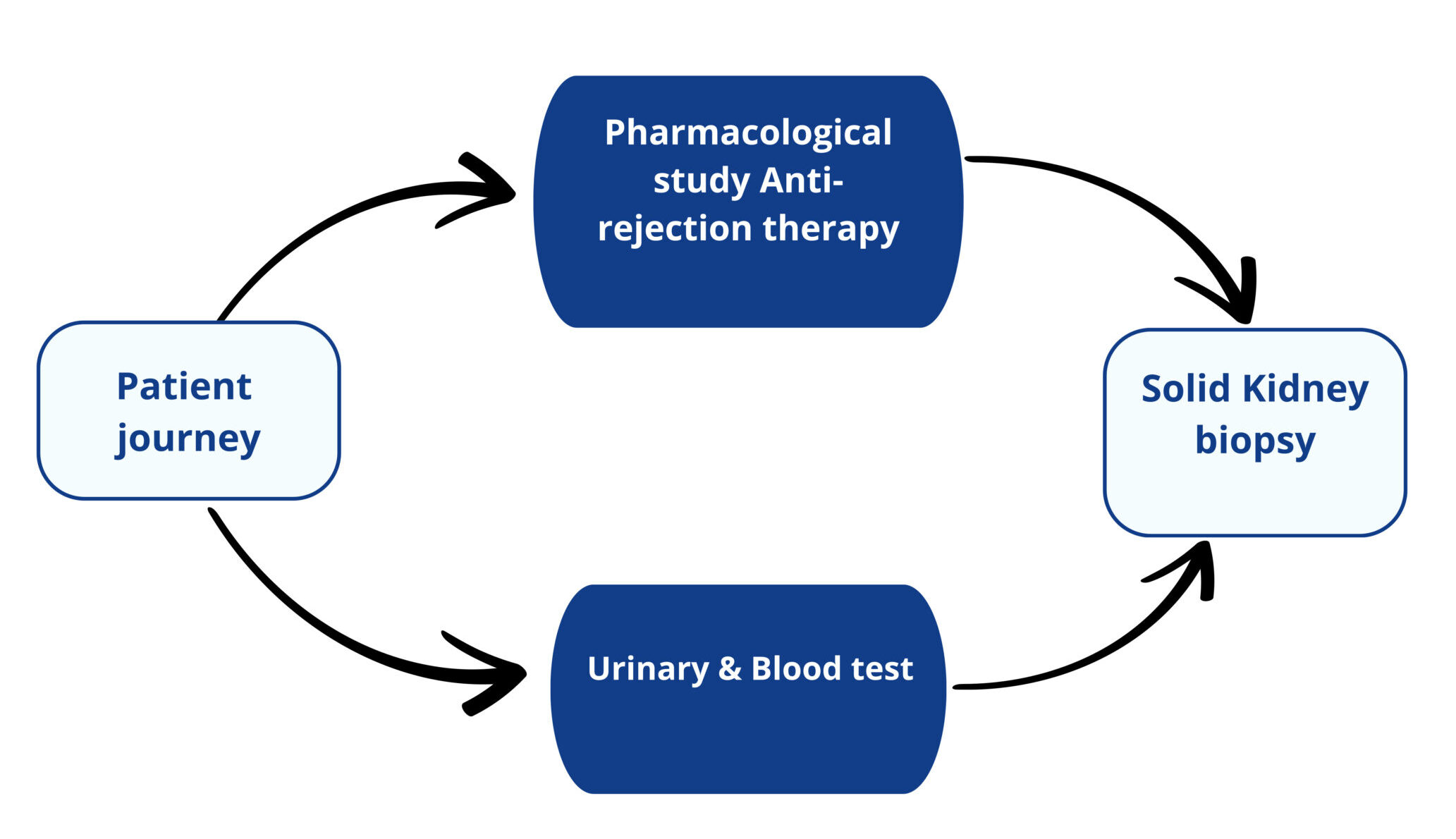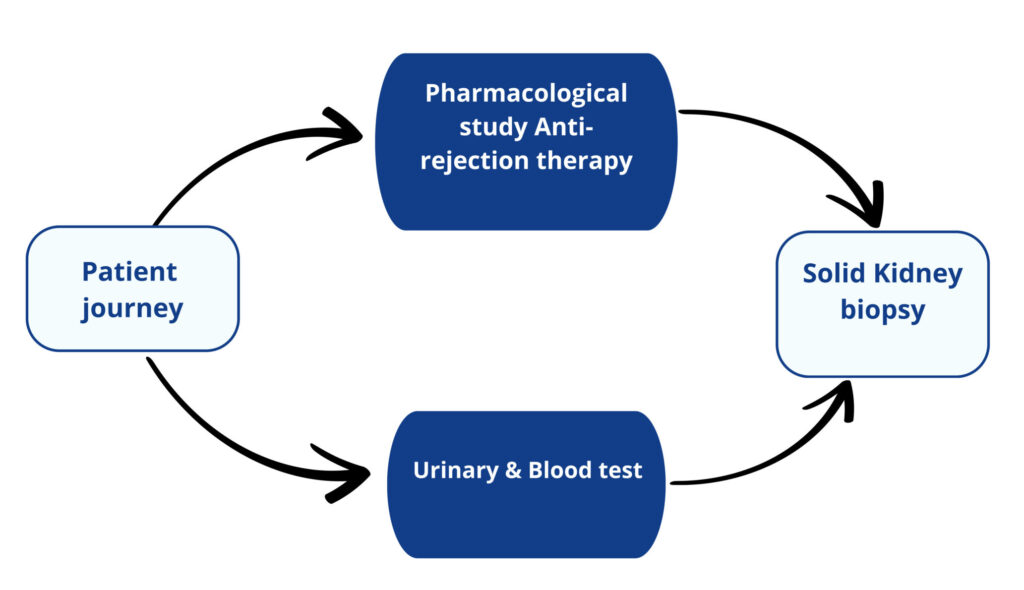- contact@cgenetix.com
- + 33 6 67 77 23 94
Clinical applications
kidney transplantation

Providing a correct diagnosis of kidney transplant rejection remains a challenge and requires invasive technologies.
KIDNEY BIOPSY : The collection of a small sample of the transplanted kidney to determine the presence of lesions, their types and confirm a rejection episode. Like all surgical procedure, it can lead to serious complications (10-15% cases), and thus is not used routinely.
clinical applications

know more about kidney transplantation

EPIDEMIOLOGY
Number cases
Europe
USA
Proportion of kidney transplant rejection
Value of monitoring damaged kidney cells during an episode of transplant rejection.
Depending on the kidney cells damaged during the rejection episode, the kidney failure will be different and its medical management also. Kidney failure can be classified into 4 categories : Fibrosis, vascular, tubular and glomerular.A kidney biopsy has to be performed to put the precise diagnosis of the kidney failure during a rejection episode.
Personalized the anti-rejection therapy to improve the patient clinical outcome.
Immunosuppressive drugs are frequently used to prevent acute and chronic rejection of the transplanted kidney. A plentiful of immunosuppressive drugs are available today but providing the optimized therapy to prevent rejection remains a challenge.By being able to monitor early lesions of the kidney graft allows the medical examiner to modulate the therapy and prevent rejection.
A kidney transplant patient journey today

- 2–3 times weekly for the first month after transplantation
- 1–2 times weekly for months 2–3
- Every 2–4 weeks for months 4–6
- Every 4–6 weeks for months 6–12;
- 3–6 monthly thereafter
 Pharmacodynamic of the anti-rejection drug is assessed according to standardized guidelines :
Pharmacodynamic of the anti-rejection drug is assessed according to standardized guidelines :
- 2–3 times weekly for the first month after transplantation.
- 1–2 times weekly for months 2–3.
- Every 2–4 weeks for months 4–6.
- Every 4–6 weeks for months 6–12.
- 3–6 monthly thereafter.

Kidney biopsy is the gold standard for the diagnostic of kidney graft rejection.
This analysis consists in quantifying, at cellular level, kidney lesions and analyzing immune cells and anti-HLA antibodies infiltrating the kidney graft.
Solid kidney biopsy is performed at least one time during the first year (screening biopsy) and for each suspicious urinary & blood tests (up to 2-3 biopsies for patients facing a kidney biopsies).
The analysis takes between 7 and 21 days


Pharmacological Study
Rejection Therapy
- 2–3 times weekly for the first month after transplantation.
- 1–2 times weekly for months 2–3.
- Every 2–4 weeks for months 4–6.
- Every 4–6 weeks for months 6–12.
- 3–6 monthly thereafter.
Urinary & Blood Test
Urinary and blood test consists in quantifying biomarkers reflecting the functionality of the kidney (creatinine, Glomerular filtration rate…).
They are performed at different frequency according to standardized guidelines :
- 2–3 times weekly for the first month after transplantation.
- 1–2 times weekly for months 2–3.
- Every 2–4 weeks for months 4–6.
- Every 4–6 weeks for months 6–12.
- 3–6 monthly thereafter.
The analysis takes less than 12h
Solid Kidney Biopsy
This analysis consists in quantifying, at cellular level, kidney lesions and analyzing immune cells and anti-HLA antibodies infiltrating the kidney graft.
Solid kidney biopsy is performed at least one time during the first year (screening biopsy) and for each suspicious urinary & blood tests (up to 2-3 biopsies for patients facing a kidney biopsies).
The analysis takes between 7 and 21 days
CGenetix develops the new generation of liquid biopsy biomarkers to evaluate organs damages during a pathological process.
